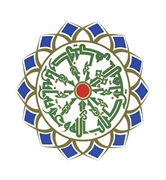- Safeguarding Azadari against Wrong Practices
- Written by Husseini Tabatabai, Mustafa
On the day of Ashura, Shi‘a Muslims all over the world commemorate the martyrdom of Imam Husayn ibn Ali, the grandson of Prophet Muhammad, at the Battle of Karbala, in protest against the oppressive ruler Yazid who ordered the massacre of Imam Husayn and his family members and companions given their refusal to accept Yazid’s allegiance. In mourning on this day, the tradition of matam, or beating one’s chest as a sign of grief for the Imam, became common. Moreover, tatbir, a more serious form of displaying one’s sorrow, was also practiced, and then afterwards banned in the Islamic Republic of Iran. This article provides an analysis as to why the ban occurred using the Qur’an, hadiths, and consensus of Shi‘a scholars to verify the forbiddance of this act.
Download the full paper
Next Post
Previous Post

Message of Thaqlayan
Most Read Papers
- Index of Previous Titles, Spring 2009 - Winter 2004
- About
- Authors
- Titles
- Subject
- Editor-in-Chief
- The Connection between Imam Mahdi and Imam Husayn, Part III
- Allamah Hilli on Imamate in Kashf al-Murad, Part II
- The Qur'an in the Words of Imam Sajjad
- Healthy Personality in the Youth: An Islamic Perspective
Recent Issues
- Volume 18, Number 3 (2017)
- Volume 18, Number 3 (2017) table of content
- Volume 18, Number 2 (2017) table of content
- Volume 18, Number 2 (2017)
- Volume 18, Number 1 (2017)
- Volume 18, Number 1 (2017) table
- Volume 17, Number 4 (2017) table
Copyright © 2022. All rights reserved by Zain Abbas Shahid
Shopping Basket

Message of Thaqlayn
Menu

